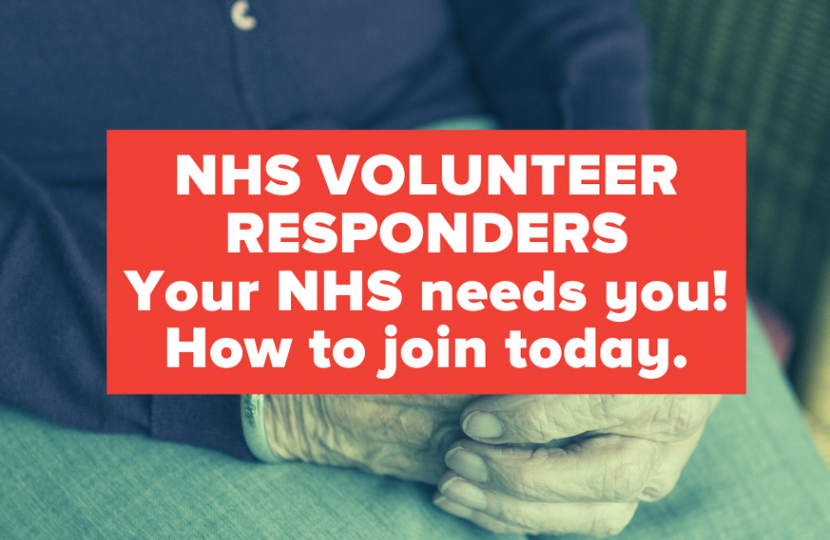
Coronavirus: How to sign up to become an NHS volunteer responder?
Members of the public will be helping the 1.5m vulnerable people who have been asked to "shield" themselves from COVID-19.
The health secretary has announced the government is seeking 250,000 volunteers to help the NHS during the coronavirus outbreak.
The NHS has said the volunteers will support the 1.5m vulnerable people who have been asked to "shield" themselves from COVID-19, the disease caused by the coronavirus.
Here's everything you need to know if you want to become an NHS volunteer responder.
How do I sign up?
Those who want to help can register by visiting the following NHS website: https://www.goodsamapp.org/NHS
Potential volunteers are asked to fill in a form with their details.
Checks are then carried out before successful applicants are given login details for the "GoodSAM" Responder app.
Volunteers can then switch the app to "on duty" to find tasks to pick from nearby.
What kind of tasks will the responders carry out?
Four types of volunteers are listed on the NHS page which allows people to register.
They are:
- Community response volunteers: This role involves collecting shopping, medication or other essential supplies for someone who is self-isolating. The volunteer would also deliver these supplies to their home.
- Patient transport volunteer: This position supports the NHS by providing transport to patients who are medically fit for discharge, and ensuring they are settled safely back into their home.
- NHS transport volunteer: This role involves transporting equipment, supplies and/or medication between NHS services and sites. It may also involve assisting pharmacies with medication delivery.
- Check-in and chat volunteer: These volunteers will provide short-term telephone support to individuals who are at risk of loneliness as a consequence of self-isolation.
Who should sign up to be a volunteer?
Health Secretary Matt Hancock has said "if you are well and able to do so safely, I would urge you to sign up today".
Volunteers must be 18 or over, and fit and well with no symptoms.
Those in higher-risk groups (including those over 70, those who are pregnant or with underlying medical conditions) will be able to offer support by telephone.
The majority of tasks can be undertaken while social distancing and volunteers will receive guidance through a "getting started pack". Those who become ill can pause their volunteering.
Who will the volunteers be helping?
Dr Nikki Kanani, the NHS' director of primary care and a GP, has said the volunteers will be helping those who have been told to "shield" themselves from the virus.
This means they will be helping the elderly and those who are vulnerable due to underlying health conditions.
"This is one of those once-in-a-lifetime moments where a single action from one person can be the difference between life and death for another, and simple acts of kindness are going to make all the difference in keeping some of the most vulnerable people well and out of hospital.
"NHS staff are pulling out all the stops to ensure those who need care receive it, and creating a bank of helpers that they can call upon to support their most vulnerable patients through this difficult time is going to be invaluable, so I would urge anyone who can to sign up as an NHS volunteer responder today. Dr Nikki Kanani, the NHS' director of primary care and a GP"
Which professionals will call on the volunteers for support?
GPs, doctors, pharmacists, nurses, midwives and NHS 111 and social care staff will all be able to request help for their at-risk patients via a call centre run by the Royal Voluntary Service (RVS).
This service will match people who need help with volunteers who live near to them.
Some charities will also be able to refer people to the service.

